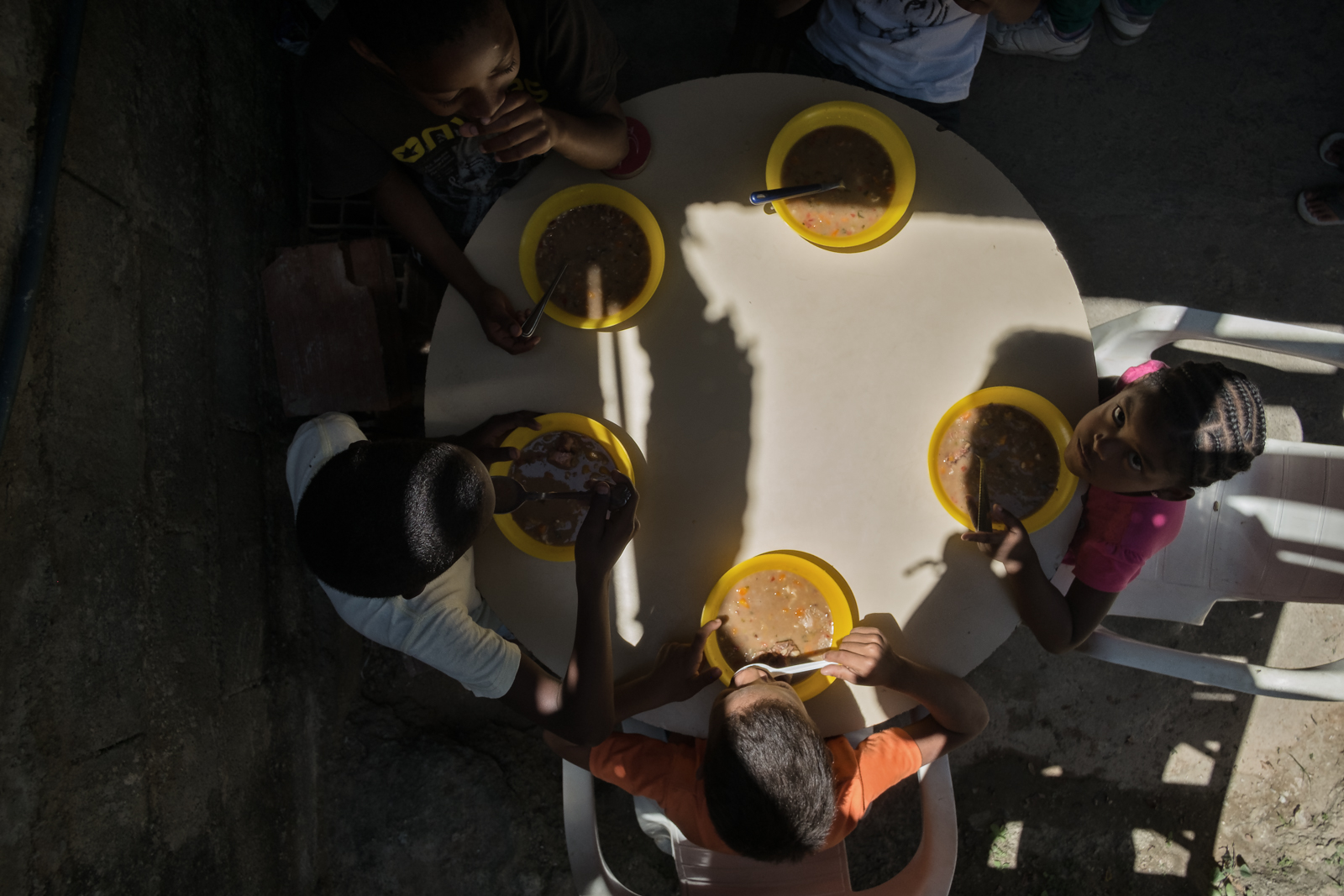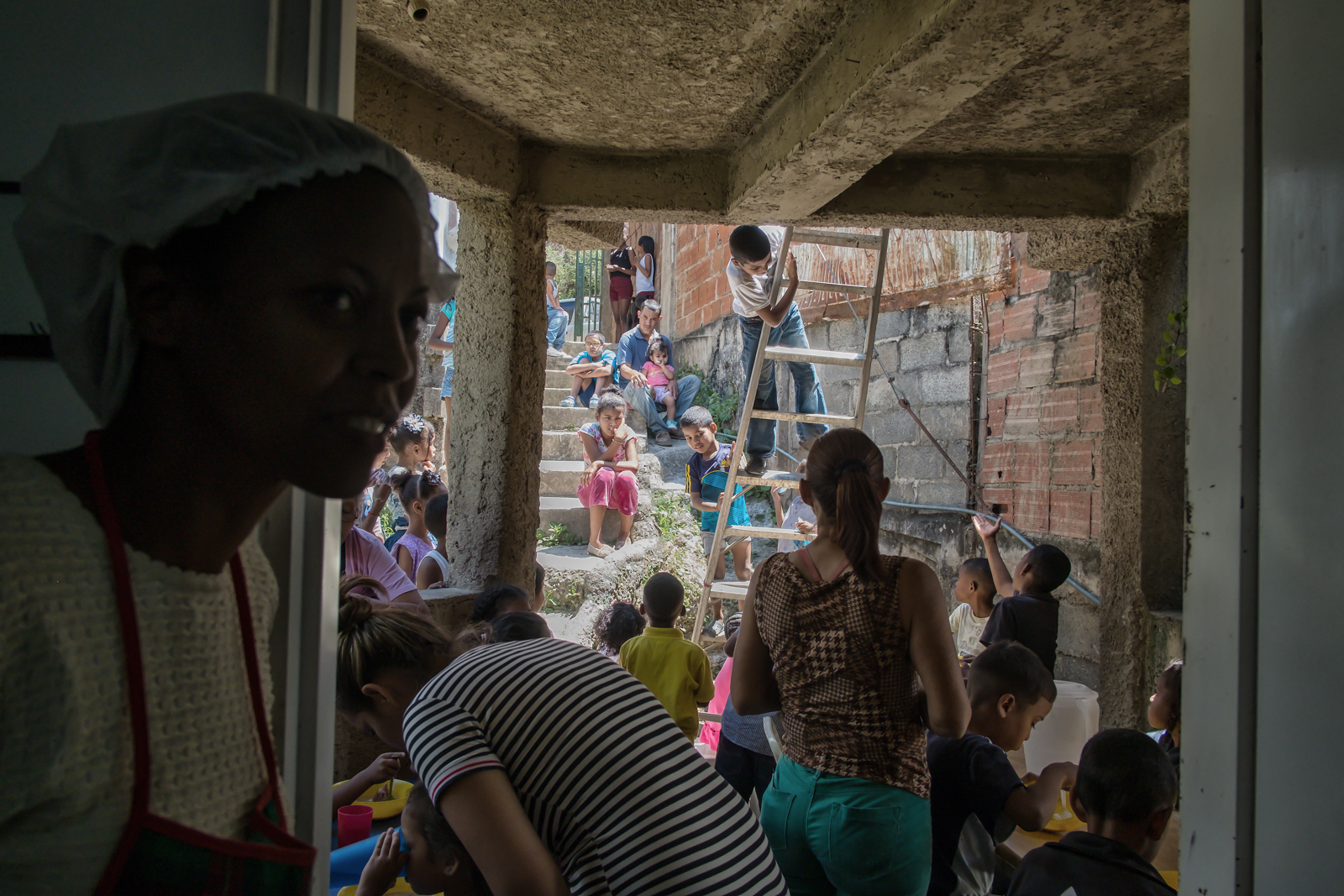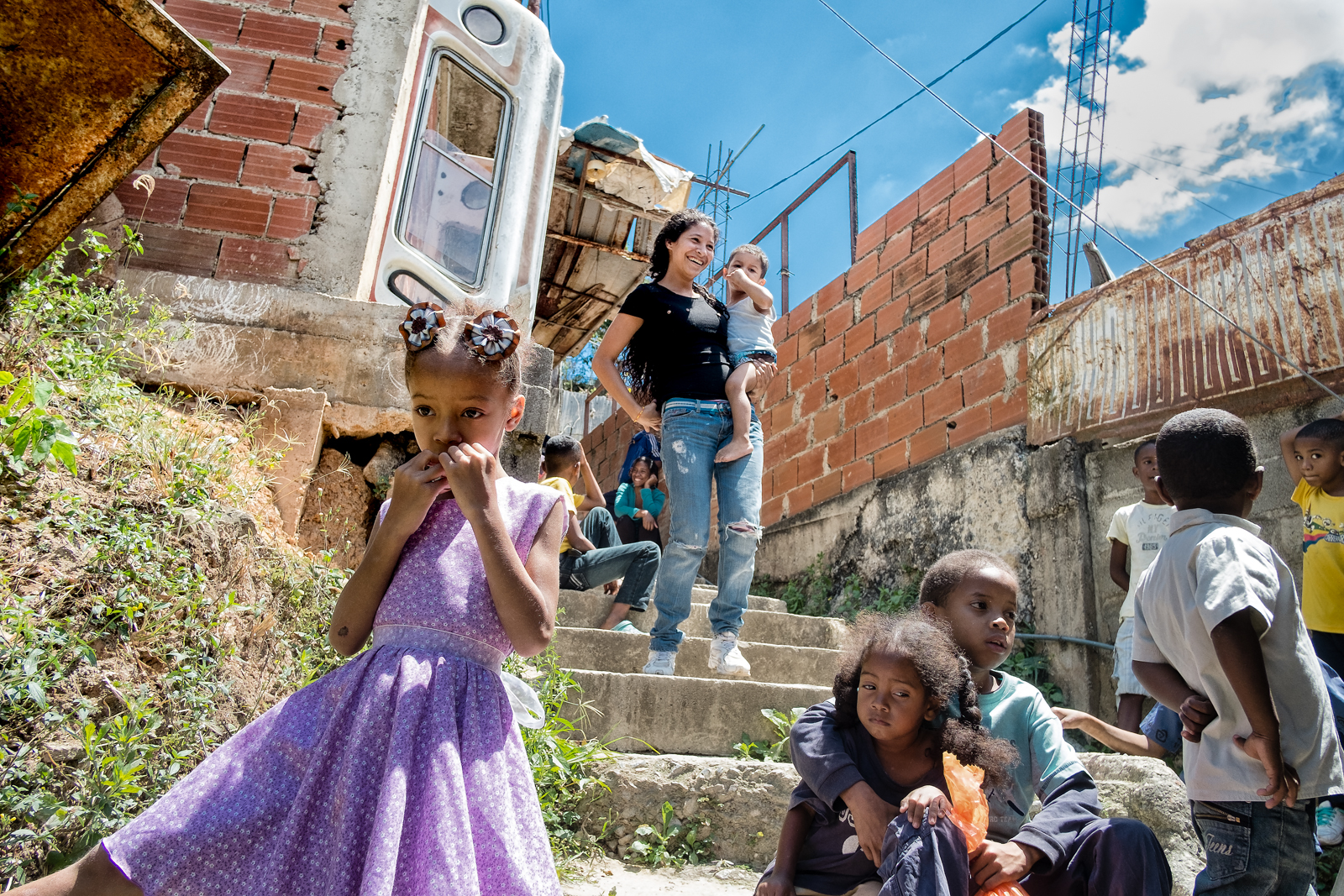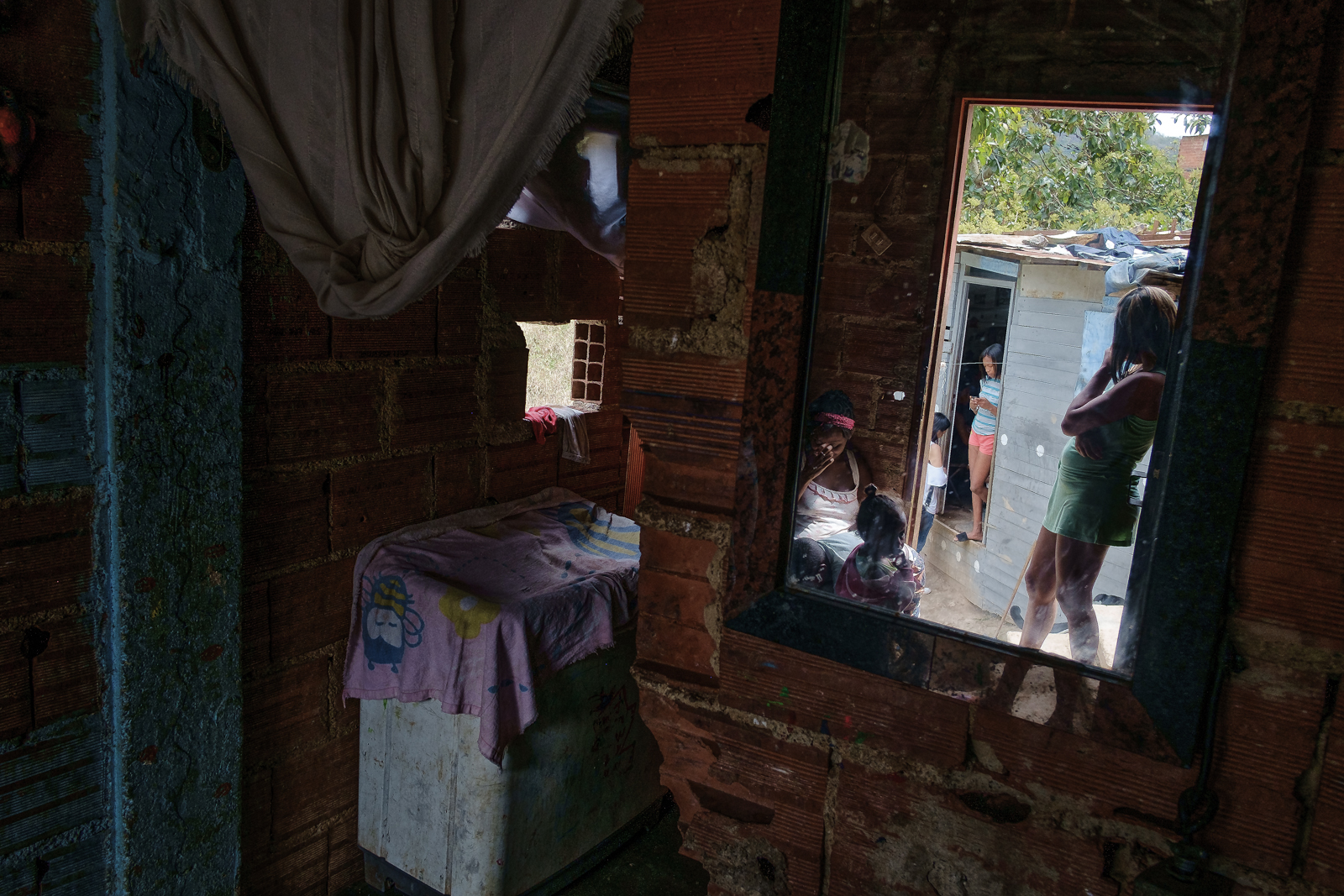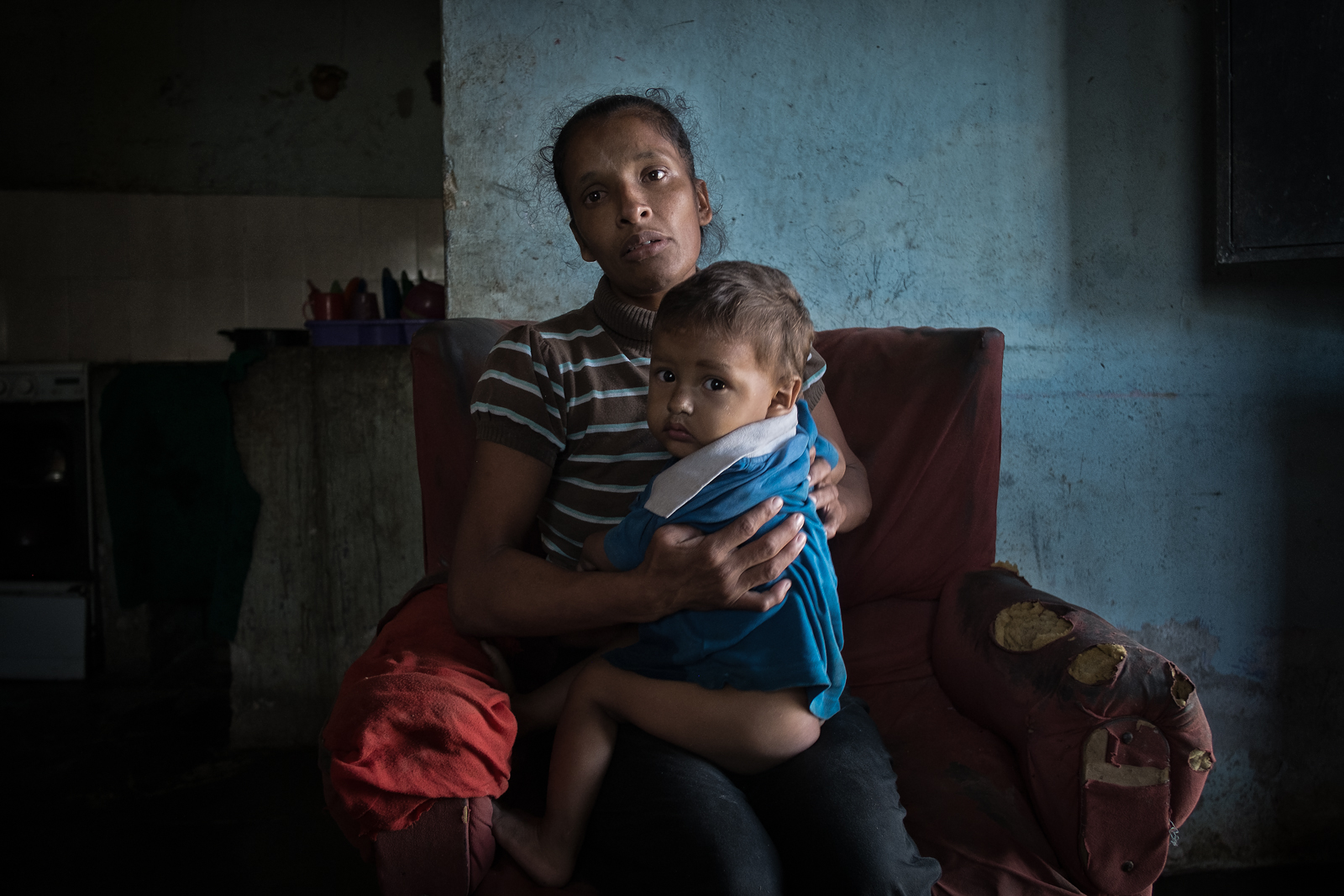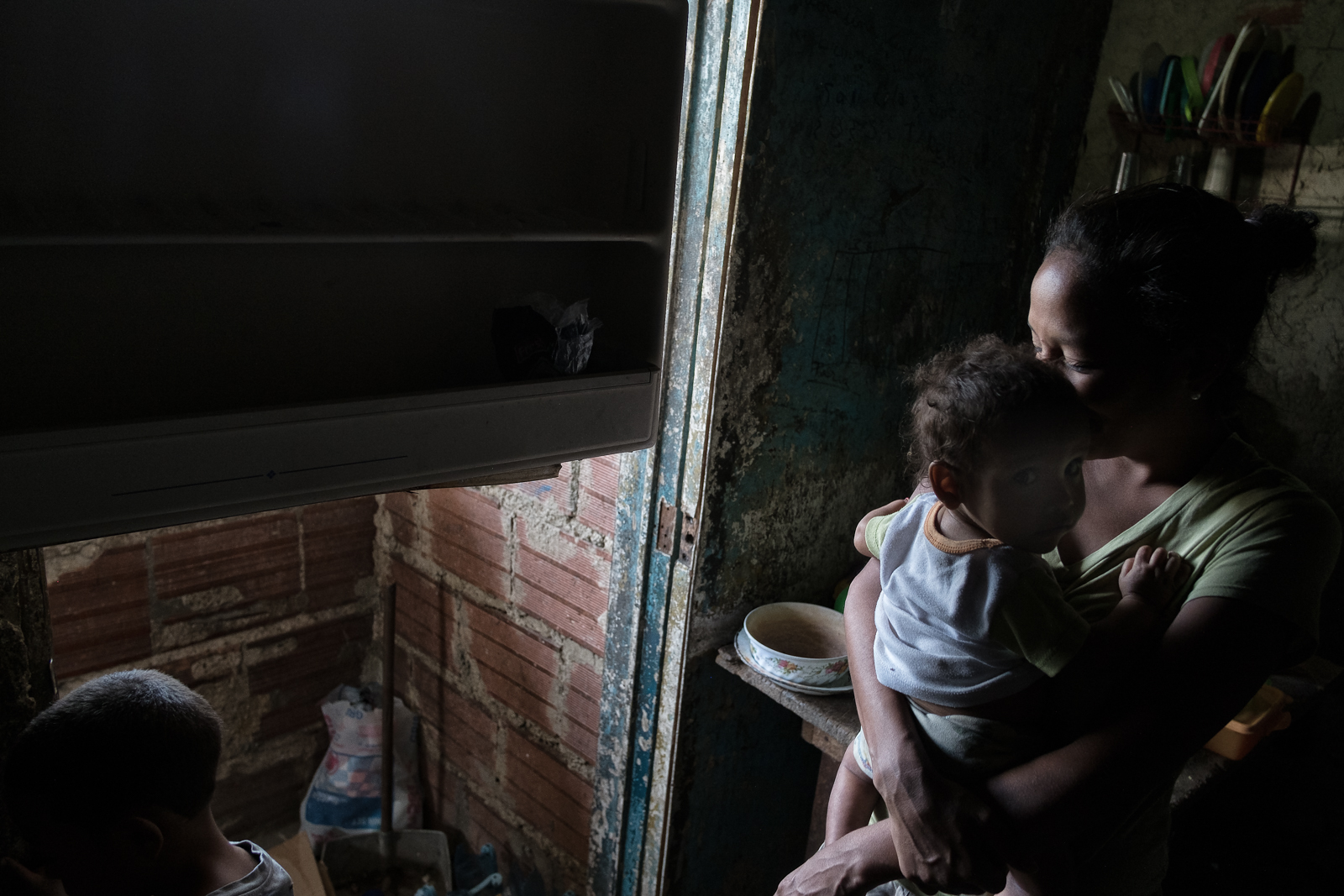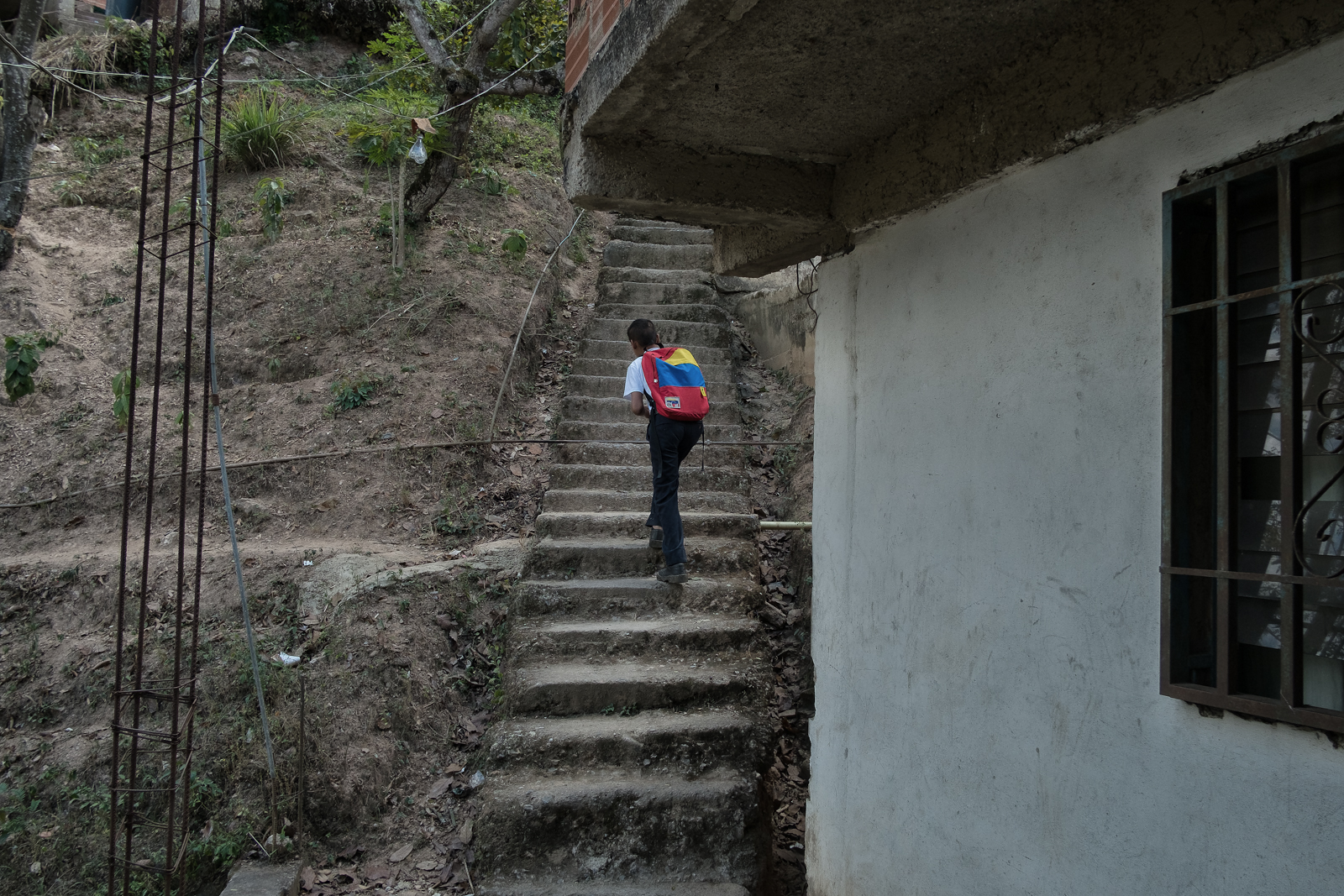Saving One Child at a Time, One Meal at a Time
NGO Alimenta la Solidaridad - Petare helps families in one of the largest slums in the continent. These are the stories of people who can’t afford to feed their children and of those fighting hunger in Venezuela’s less fortunate communities.


Photos: Gabriel Méndez
At 11:30 a.m. on that Monday, Maite tried to calm her baby’s cries, frantically alternating him between her two breasts. In her modest rancho in Caucagüita, Turumo, they’d only managed to eat some cassava, in a late breakfast that mixed with lunch, and they ate another portion later to quell the hunger before turning in. There was no food on Sunday in that kitchen. Maite, a mother of five, left her only daughter to her sister’s care, a small solace from the burden of being a single (and poor) mom. Her eldest son, 17-year-old Maikel, suffers from epilepsy and shows the development of an incipient teenager. Her work ironing clothes for people in the neighborhood is barely enough to buy cassava, yam or plantain, in the long periods between the deliveries of CLAP boxes with irregular and insufficient products. Maite’s defeated eyes, deep and dodgy, are fixed on the floor and subtly shaking her head, she blurts “We can stand hunger, children can’t.”
The same phrase comes from Julia’s lips days later, now from the San Blas neighborhood in Petare, while she breastfeeds her newborn son, drowned in the shrilling complaint of her second son, who’s not been allowed to benefit from her mother’s milk for the last fifteen days. “He’s hungry,” she says almost as an apology, her face twisted by the helplessness of a mother who can do nothing to ease his hunger. Adriana, her neighbor across the vereda, knows what she’s talking about. Her toddler was diagnosed with malnutrition. His muscles are weak and he suffers from a dermatitis all but worsened by cloth diapers. One case after another, right here in Caracas. The times when babies were born with an arepa beneath their arms is long gone.
That Monday, Karina, along with four mothers in the neighborhood, looked rejoiced and nervous. Vivacious 8-year-old Brayan, her only son, briskly strode from the kitchen to the porch where children were gathering around four makeshift wooden tables. After the local elections in 2017, the community kitchen managed by Fundación Propetare and their program Alimenta la Solidaridad in a public building taken over by chavismo, was cleared out. Karina knew her community’s growing need and she wasn’t willing to look away. With the support of the foundation and her neighbors, she served 45 meals. Maite was there, her face relieved, waiting for the first meal her kids were going to eat that week. By 1:00 p.m., all the kids had eaten. Brayan ran up and down the stairs with his friends. Toddlers were returning home in their mothers’ arms. Maikel would be attending school with a full belly.
In the very heart of the Revolution, one in every three people lives in absolute poverty. Half their children drop out of school for lack of food at home. Hunger is a death sentence. We could all give in to hopelessness or, like Alimenta La Solidaridad – Petare, we could save a kid at a time, a meal at a time.
Caracas Chronicles is 100% reader-supported.
We’ve been able to hang on for 22 years in one of the craziest media landscapes in the world. We’ve seen different media outlets in Venezuela (and abroad) closing shop, something we’re looking to avoid at all costs. Your collaboration goes a long way in helping us weather the storm.
Donate


